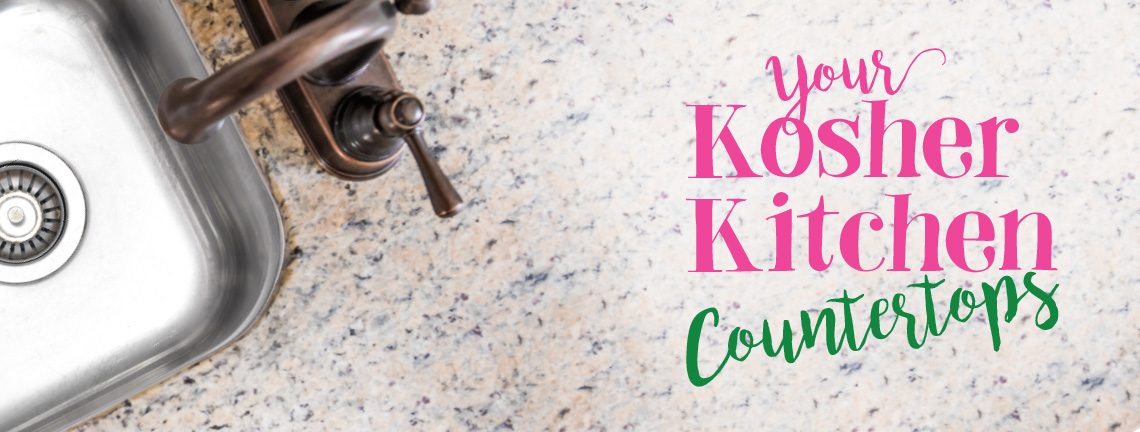Countertops must either be kashered or covered for Pesach. If covering, one should make sure to use a non-porous material that will not easily rip or tear.
If kashering, one must first scrub the countertop clean. Then it should be left for 24 hours without anything hot being placed on it. Only after this, can one proceed with the kashering.
Care should be taken that the countertop is smooth and clean before kashering. Any countertop that has holes or scratches in which small particles of food can be trapped cannot be kashered and should instead be covered.
The standard procedure for kashering countertops is called “Irui Mayim Roischin” which means, “pouring boiling water”. The pot should be kosher for Passover. If one wants to use a chometz pot, it should be left for 24 hours, then water should be boiled and emptied before using. One heats up a pot of water on the stove and after it boils it is poured onto the counter. Care should be taken that the boiling water is poured over the entire area of the counter and that there is a continuous flow of water from the pot to the surface (it is ideal to use a tea pot for kashering). If the counter is large, it may be kashered in stages. One would boil a pot of water and pour it on one portion of the counter and then repeat the process for the next portion, etc.
It is preferable to use an “Even Melubenes” (glowing stone) as well. One takes a stone and places it in a fire (or on the stove) until it is glowing hot. Then, after pouring the boiling water on the counter, one takes the stone and uses it to cause the water to boil again after it is in the counter. Once again, care should be taken that the stone is used over the entire area of the counter. Although Shulchan Oruch refers to a stone, one can use any device that will accomplish the same goal of causing the water to boil again on the counter. A practical option is to use a clothing iron (unplug immediately before use for safety).
Below is a list of different countertop materials
Quartz – can be kashered according to most opinions
Corian – differing opinions; according to Rav Moshe Landau, it can be kashered
Marble – if smooth, it can be kashered
Granite – can be kashered
Formica/Laminate – cannot not be kashered for Pesach (see note below)
Recycled Glass – cannot not be kashered for Pesach (see note below)
Lava – glazed with enamel, cannot be kashered
Resin – cannot be kashered for Pesach (see note below)
Wood – can be kashered (if hard/smooth)
Ceramic Tile – cannot be kashered
Neolith – this material is certified by the OK for Passover when brand new; cannot be kashered
Stainless Steel – can be kashered
Concrete – cannot be kashered
Porcelain – cannot be kashered
Enamel – cannot be kashered
Soapstone – differing opinions; according to Rav Moshe Landau this can be kashered
Caesarstone – differing opinions; according to Rav Moshe Landau this can be kashered
Note regarding glass and plastic/resin based countertops: According to several Poskim these countertops can be kashered by repeating the kashering process 3 times. שו”ת ציץ אליעזר ח”ט סי’ כ”ו, חלקת יעקב ח”ב סי’ קס”ג ומנחת יצחק ח”ג סי’ ס”ז







